
 +91-22-48913909
+91-22-48913909
Table of Contents
- Why to Invest in Equity Funds?
- Equity NAV
- Top Equity Mutual Funds 2024
- 5 Best Large Cap Equity Mutual Funds
- 5 Best Mid Cap Equity Mutual Funds
- 5 Best Small Cap Equity Mutual Funds
- 5 Best Large & Mid Cap Equity Mutual Funds
- 5 Best Equity Linked Savings Schemes (ELSS)
- 5 Best Diversified/Multi Cap Equity Mutual Funds
- 5 Best Sector Equity Mutual Funds
- 5 Best Focused Equity Funds
- 5 Best Dividend Yield Equity Funds
- 5 Best Value Equity Funds
- Smart Tips to Choose Best Equity Funds for 2024
- Equity Fund Taxation
- How to Invest in Best Equity Mutual Funds Online?
- Conclusion
Top 6 Equity - Sectoral Funds
Best Equity Mutual Funds 2024 - 2025
An equity fund is a mutual fund that invests principally in stocks. It can be actively or passively (index fund) managed. These are also known as stock funds.
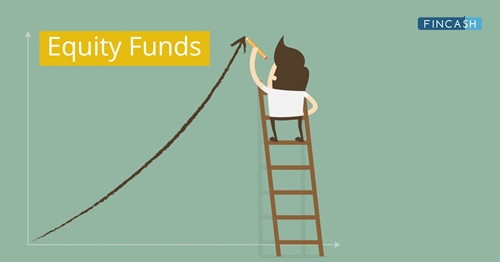
Equity Funds should be the vehicle of choice when Investing for long-term goals as they have created huge profits for investors in the past few years. But as there is a wide choice before investors, choosing the right equity fund becomes critical.
With right qualitative and quantitative measures (discussed below), one can ideally choose the best equity Mutual Funds to invest.
Why to Invest in Equity Funds?
1. Liquidity
Since stocks are actively traded across all major exchanges, every day, this makes equity funds a highly liquid investment. It provides investors, the convenience of buying and selling their stocks depending on the Market situation. By investing in equity mutual funds, the money is usually credited to your Bank account in 3 days.
2. Dividend Income
Investing into blue-chip companies may help investors earn a steady Income in the form of dividends. A majority of such companies usually pay out regular dividends even in volatile market conditions, typically paid quarterly. Having a diversified Portfolio can provide investors with a steady dividend income in the year.
3. Portfolio Diversification
With best equity mutual funds investors can diversify their portfolio through regularly investing. It means that they can invest in stocks of different economic sectors. So, even if a particular stock drops in value, the others may help investors make up for that loss depending on the market situation.
4. Ideal Investment Vehicle
In many ways, equity funds are ideal investment vehicles for investors that are not as well-versed in financial investing or do not possess a large amount of Capital with which to invest. They are practical investments for most people.
The attributes that make equity funds most suitable for small individual investors are the reduction of risk resulting from a fund's portfolio diversification and the relatively small amount of capital required to acquire shares of an equity fund. A large amount of investment capital would be required for an individual investor to achieve a similar degree of risk reduction through diversification of a portfolio of direct stock holdings. Pooling small investors capital allows an equity fund to diversify effectively without burdening each investor with large capital requirements.
Equity NAV
The price of the equity fund is based on the fund's net asset value (NAV) less its liabilities. A more diversified fund means that there is less negative effect of an individual stock's adverse price movement on the overall portfolio and on the share price of the equity fund.
Equity funds are managed by experienced professional portfolio managers, and their past performance is a matter of public record. Transparency and reporting requirements for equity funds are heavily regulated by the Security Exchange Board of India (SEBI)
Talk to our investment specialist
Top Equity Mutual Funds 2024
Best equity mutual funds are categorised according to its types- ELSS, Large cap funds, mid cap funds, Small cap funds, Diversified Funds, sector funds and Balanced Fund.
5 Best Large Cap Equity Mutual Funds
Fund NAV Net Assets (Cr) 3 MO (%) 6 MO (%) 1 YR (%) 3 YR (%) 5 YR (%) 2023 (%) Nippon India Large Cap Fund Growth ₹87.4928
↑ 0.19 ₹29,534 10 21.2 36.6 24.9 20.7 32.1 ICICI Prudential Bluechip Fund Growth ₹105.73
↑ 0.28 ₹59,364 9.7 18.2 37 21.5 20.5 27.4 HDFC Top 100 Fund Growth ₹1,130
↓ -0.26 ₹35,435 9.4 14.9 33.9 21.5 18.3 30 BNP Paribas Large Cap Fund Growth ₹222.23
↑ 0.76 ₹2,120 10.9 22.1 40.1 19.9 20.2 24.8 IDFC Large Cap Fund Growth ₹74.796
↓ -0.03 ₹1,515 11.8 20.3 35 18.1 18.8 26.8 Note: Returns up to 1 year are on absolute basis & more than 1 year are on CAGR basis. as on 24 Jul 24
5 Best Mid Cap Equity Mutual Funds
Fund NAV Net Assets (Cr) 3 MO (%) 6 MO (%) 1 YR (%) 3 YR (%) 5 YR (%) 2023 (%) Edelweiss Mid Cap Fund Growth ₹93.295
↑ 0.58 ₹6,625 16.7 26 57.3 25.6 30.6 38.4 TATA Mid Cap Growth Fund Growth ₹438.771
↑ 2.38 ₹4,194 14.5 25 53.3 24.7 27.6 40.5 Invesco India Mid Cap Fund Growth ₹156.89
↑ 2.96 ₹5,216 16.6 27.5 53.5 24.4 28.8 34.1 ICICI Prudential MidCap Fund Growth ₹286.28
↑ 2.45 ₹6,528 13.9 26.6 56.4 23.2 25.5 32.8 BNP Paribas Mid Cap Fund Growth ₹101.248
↑ 0.86 ₹2,103 15.6 25.5 50.7 22.4 27.5 32.6 Note: Returns up to 1 year are on absolute basis & more than 1 year are on CAGR basis. as on 24 Jul 24
5 Best Small Cap Equity Mutual Funds
Fund NAV Net Assets (Cr) 3 MO (%) 6 MO (%) 1 YR (%) 3 YR (%) 5 YR (%) 2023 (%) Nippon India Small Cap Fund Growth ₹174.928
↑ 2.45 ₹56,469 15 25.1 52.1 31.2 36.2 48.9 Franklin India Smaller Companies Fund Growth ₹182.303
↑ 2.64 ₹14,023 15.6 23.1 56.5 30.1 30 52.1 L&T Emerging Businesses Fund Growth ₹85.1982
↑ 1.26 ₹16,397 14.1 21.4 47.9 28.6 30.2 46.1 IDBI Small Cap Fund Growth ₹32.0174
↑ 0.60 ₹281 19.3 28.2 53.3 28.5 29.9 33.4 HDFC Small Cap Fund Growth ₹136.763
↑ 2.56 ₹31,523 10.1 15.9 38.7 25 28.3 44.8 Note: Returns up to 1 year are on absolute basis & more than 1 year are on CAGR basis. as on 24 Jul 24
5 Best Large & Mid Cap Equity Mutual Funds
Fund NAV Net Assets (Cr) 3 MO (%) 6 MO (%) 1 YR (%) 3 YR (%) 5 YR (%) 2023 (%) ICICI Prudential Large & Mid Cap Fund Growth ₹948.23
↑ 3.30 ₹14,486 11.6 23.6 44.7 26.5 24.4 29.9 HDFC Growth Opportunities Fund Growth ₹333.981
↑ 1.89 ₹21,459 12.4 19.9 44.9 25.6 25 37.7 IDFC Core Equity Fund Growth ₹129.131
↑ 0.71 ₹5,360 13.6 26.3 53.9 25.5 24.4 36.2 UTI Core Equity Fund Growth ₹175.149
↑ 1.13 ₹3,441 16.3 26.4 49.2 23.5 24.2 34.4 Kotak Equity Opportunities Fund Growth ₹333.49
↑ 1.37 ₹24,055 11.7 23.8 42.1 22.3 23.8 29.3 Note: Returns up to 1 year are on absolute basis & more than 1 year are on CAGR basis. as on 24 Jul 24
5 Best Equity Linked Savings Schemes (ELSS)
Fund NAV Net Assets (Cr) 3 MO (%) 6 MO (%) 1 YR (%) 3 YR (%) 5 YR (%) 2023 (%) SBI Magnum Tax Gain Fund Growth ₹429.548
↑ 3.63 ₹25,738 11.7 25.3 54.3 27.6 25.6 40 HDFC Tax Saver Fund Growth ₹1,336.7
↑ 1.29 ₹15,674 12.6 21 45.8 26.3 21.6 33.2 Motilal Oswal Long Term Equity Fund Growth ₹48.4564
↑ 0.67 ₹3,710 10.8 26.8 55.4 23.8 24.4 37 Franklin India Taxshield Growth ₹1,447.69
↑ 5.37 ₹6,816 11.8 19.6 44.5 22.4 21.4 31.2 Nippon India Tax Saver Fund (ELSS) Growth ₹128.045
↑ 0.84 ₹15,917 12.8 23.2 42.8 22.3 19.5 28.6 Note: Returns up to 1 year are on absolute basis & more than 1 year are on CAGR basis. as on 24 Jul 24
5 Best Diversified/Multi Cap Equity Mutual Funds
Fund NAV Net Assets (Cr) 3 MO (%) 6 MO (%) 1 YR (%) 3 YR (%) 5 YR (%) 2023 (%) JM Multicap Fund Growth ₹105.172
↑ 0.87 ₹3,216 17.4 32.9 64.3 31.8 27.6 40 Nippon India Multi Cap Fund Growth ₹289.411
↑ 2.86 ₹34,943 11.9 25.8 45.4 30.8 24.8 38.1 HDFC Equity Fund Growth ₹1,841.48
↑ 2.43 ₹59,123 12.3 21 42.7 26.9 22.9 30.6 Mahindra Badhat Yojana Growth ₹34.7542
↑ 0.18 ₹3,670 12.1 20.3 45.4 23 26.7 34.2 Franklin India Equity Fund Growth ₹1,597.04
↑ 5.94 ₹16,677 11.7 19.4 43.7 22.8 23.3 30.8 Note: Returns up to 1 year are on absolute basis & more than 1 year are on CAGR basis. as on 24 Jul 24
5 Best Sector Equity Mutual Funds
Fund NAV Net Assets (Cr) 3 MO (%) 6 MO (%) 1 YR (%) 3 YR (%) 5 YR (%) 2023 (%) SBI PSU Fund Growth ₹33.6726
↑ 0.27 ₹3,695 10.8 29.5 84.7 40.4 27.1 54 Invesco India PSU Equity Fund Growth ₹67.77
↑ 0.29 ₹1,363 17 37.1 84.4 39.3 31.6 54.5 LIC MF Infrastructure Fund Growth ₹50.8073
↑ 0.77 ₹430 25.3 43 83.5 37.4 29.3 44.4 IDFC Infrastructure Fund Growth ₹55.681
↑ 0.63 ₹1,592 20.6 42.7 82.5 34.2 30.6 50.3 Invesco India Infrastructure Fund Growth ₹66.18
↑ 0.40 ₹1,470 15.9 31.3 72.5 32.3 32 51.1 Note: Returns up to 1 year are on absolute basis & more than 1 year are on CAGR basis. as on 24 Jul 24
5 Best Focused Equity Funds
Fund NAV Net Assets (Cr) 3 MO (%) 6 MO (%) 1 YR (%) 3 YR (%) 5 YR (%) 2023 (%) HDFC Focused 30 Fund Growth ₹212.489
↑ 0.69 ₹13,137 12.3 21.2 42.6 28.3 23.1 29.6 ICICI Prudential Focused Equity Fund Growth ₹85.2
↑ 0.10 ₹9,113 13.8 26 44.9 24 23.6 28.3 Franklin India Focused Equity Fund Growth ₹106.483
↑ 0.12 ₹12,198 11 19.7 36 20.6 21.3 23.5 IIFL Focused Equity Fund Growth ₹47.8508
↑ 0.03 ₹7,641 12.1 21.8 38.3 20.1 24.5 29.8 Nippon India Focused Equity Fund Growth ₹119.773
↑ 0.37 ₹8,585 14.5 18.6 33.9 19.4 21.3 27.1 Note: Returns up to 1 year are on absolute basis & more than 1 year are on CAGR basis. as on 24 Jul 24
5 Best Dividend Yield Equity Funds
Fund NAV Net Assets (Cr) 3 MO (%) 6 MO (%) 1 YR (%) 3 YR (%) 5 YR (%) 2023 (%) ICICI Prudential Dividend Yield Equity Fund Growth ₹50.8
↑ 0.16 ₹4,257 11.4 24 53.2 29.4 26 38.8 Templeton India Equity Income Fund Growth ₹142.992
↑ 0.12 ₹2,326 13.5 23.6 49.7 24.5 25.8 33.3 Aditya Birla Sun Life Dividend Yield Fund Growth ₹461.34
↑ 0.18 ₹1,447 12.8 21 50.4 24.3 25 40.3 UTI Dividend Yield Fund Growth ₹176.069
↑ 0.73 ₹4,071 18.3 26.5 50.5 21.3 23.1 35.4 Principal Dividend Yield Fund Growth ₹139.428
↑ 0.21 ₹924 11.4 19.4 42.9 20.2 22.7 34 Note: Returns up to 1 year are on absolute basis & more than 1 year are on CAGR basis. as on 24 Jul 24
5 Best Value Equity Funds
Fund NAV Net Assets (Cr) 3 MO (%) 6 MO (%) 1 YR (%) 3 YR (%) 5 YR (%) 2023 (%) JM Value Fund Growth ₹105.834
↑ 1.49 ₹839 17.5 25.2 63.6 31 28.8 47.7 Templeton India Value Fund Growth ₹740.811
↑ 4.33 ₹2,138 13.5 23.1 46.1 27.1 25.7 33.7 ICICI Prudential Value Discovery Fund Growth ₹444.32
↓ -0.07 ₹45,471 11.5 20.1 42.5 26.8 25.6 31.4 L&T India Value Fund Growth ₹108.181
↑ 1.18 ₹13,358 14.1 25.7 52.9 26.5 25.3 39.4 Tata Equity PE Fund Growth ₹356.073
↑ 2.65 ₹8,484 12.7 23.1 47 25.7 22.7 37 Note: Returns up to 1 year are on absolute basis & more than 1 year are on CAGR basis. as on 24 Jul 24
*Below is list of Equity Funds having AUM >= 50 Crore having best returns in last 1 Year.
The objective of the scheme would be to provide investors with opportunities for long-term growth in capital along with the liquidity of an open-ended scheme through an active management of investments in a diversified basket of equity stocks of domestic Public Sector Undertakings and in debt and money market instruments issued by PSUs AND others. SBI PSU Fund is a Equity - Sectoral fund was launched on 7 Jul 10. It is a fund with High risk and has given a Below is the key information for SBI PSU Fund Returns up to 1 year are on To generate capital appreciation by investing in Equity and Equity Related Instruments of companies where the Central / State Government(s) has majority shareholding or management control or has powers to appoint majority of directors. However, there is no assurance or guarantee that the investment objective of the Scheme will be achieved. The Scheme does not assure or guarantee any returns. Invesco India PSU Equity Fund is a Equity - Sectoral fund was launched on 18 Nov 09. It is a fund with High risk and has given a Below is the key information for Invesco India PSU Equity Fund Returns up to 1 year are on The investment objective of the scheme is to provide long term growth from a portfolio of equity / equity related instruments of companies engaged either directly or indirectly in the infrastructure sector. LIC MF Infrastructure Fund is a Equity - Sectoral fund was launched on 29 Feb 08. It is a fund with High risk and has given a Below is the key information for LIC MF Infrastructure Fund Returns up to 1 year are on The investment objective of the scheme is to seek to generate long-term capital growth through an active diversified portfolio of predominantly equity and equity related instruments of companies that are participating in and benefiting from growth in Indian infrastructure and infrastructural related activities. However, there can be no assurance that the investment objective of the scheme will be realized. IDFC Infrastructure Fund is a Equity - Sectoral fund was launched on 8 Mar 11. It is a fund with High risk and has given a Below is the key information for IDFC Infrastructure Fund Returns up to 1 year are on The Scheme seeks to provide long term capital appreciation by investing in a portfolio that is predominantly constituted of equity and equity related instruments of infrastructure companies. However, there can be no assurance that the investment objective of the Scheme will be achieved. Invesco India Infrastructure Fund is a Equity - Sectoral fund was launched on 21 Nov 07. It is a fund with High risk and has given a Below is the key information for Invesco India Infrastructure Fund Returns up to 1 year are on (Erstwhile Reliance Diversified Power Sector Fund) The primary investment objective of the scheme is to generate long term capital appreciation by investing predominantly in equity and equity related securities of companies in the power sector. Nippon India Power and Infra Fund is a Equity - Sectoral fund was launched on 8 May 04. It is a fund with High risk and has given a Below is the key information for Nippon India Power and Infra Fund Returns up to 1 year are on 1. SBI PSU Fund
CAGR/Annualized return of 9% since its launch. Ranked 31 in Sectoral category. Return for 2023 was 54% , 2022 was 29% and 2021 was 32.4% . SBI PSU Fund
Growth Launch Date 7 Jul 10 NAV (24 Jul 24) ₹33.6726 ↑ 0.27 (0.82 %) Net Assets (Cr) ₹3,695 on 30 Jun 24 Category Equity - Sectoral AMC SBI Funds Management Private Limited Rating ☆☆ Risk High Expense Ratio 2.52 Sharpe Ratio 2.82 Information Ratio -1.09 Alpha Ratio -5.09 Min Investment 5,000 Min SIP Investment 500 Exit Load 0-1 Years (1%),1 Years and above(NIL) Growth of 10,000 investment over the years.
Date Value 30 Jun 19 ₹10,000 30 Jun 20 ₹7,741 30 Jun 21 ₹11,369 30 Jun 22 ₹11,338 30 Jun 23 ₹15,472 30 Jun 24 ₹30,459 Returns for SBI PSU Fund
absolute basis & more than 1 year are on CAGR (Compound Annual Growth Rate) basis. as on 24 Jul 24 Duration Returns 1 Month 3% 3 Month 10.8% 6 Month 29.5% 1 Year 84.7% 3 Year 40.4% 5 Year 27.1% 10 Year 15 Year Since launch 9% Historical performance (Yearly) on absolute basis
Year Returns 2023 54% 2022 29% 2021 32.4% 2020 -10% 2019 6% 2018 -23.8% 2017 21.9% 2016 16.2% 2015 -11.1% 2014 41.5% Fund Manager information for SBI PSU Fund
Name Since Tenure Rohit Shimpi 1 Jun 24 0.08 Yr. Data below for SBI PSU Fund as on 30 Jun 24
Equity Sector Allocation
Sector Value Financial Services 31.38% Utility 22.65% Energy 15.95% Industrials 13.12% Basic Materials 8.45% Asset Allocation
Asset Class Value Cash 8.45% Equity 91.55% Top Securities Holdings / Portfolio
Name Holding Value Quantity State Bank of India (Financial Services)
Equity, Since 31 Jul 10 | SBIN14% ₹524 Cr 6,177,500
↑ 2,300,000 GAIL (India) Ltd (Utilities)
Equity, Since 31 May 24 | GAIL9% ₹340 Cr 15,500,000
↑ 12,450,000 Power Grid Corp Of India Ltd (Utilities)
Equity, Since 31 Jul 10 | POWERGRID9% ₹332 Cr 10,035,554
↑ 4,150,000 NTPC Ltd (Utilities)
Equity, Since 31 Jul 10 | NTPC4% ₹164 Cr 4,343,244 Bharat Electronics Ltd (Industrials)
Equity, Since 30 Jun 24 | BEL4% ₹147 Cr 4,800,000
↑ 4,800,000 Coal India Ltd (Energy)
Equity, Since 30 Sep 21 | COALINDIA4% ₹130 Cr 2,750,000 Life Insurance Corporation of India (Financial Services)
Equity, Since 29 Feb 24 | 5435264% ₹130 Cr 1,310,000
↑ 460,000 Petronet LNG Ltd (Energy)
Equity, Since 30 Jun 24 | PETRONET3% ₹116 Cr 3,500,000
↑ 3,500,000 General Insurance Corp of India (Financial Services)
Equity, Since 31 May 24 | GICRE3% ₹114 Cr 3,000,000
↑ 1,800,000 SBI Life Insurance Company Limited (Financial Services)
Equity, Since 30 Jun 24 | SBILIFE3% ₹112 Cr 750,000
↑ 750,000 2. Invesco India PSU Equity Fund
CAGR/Annualized return of 13.9% since its launch. Ranked 33 in Sectoral category. Return for 2023 was 54.5% , 2022 was 20.5% and 2021 was 31.1% . Invesco India PSU Equity Fund
Growth Launch Date 18 Nov 09 NAV (24 Jul 24) ₹67.77 ↑ 0.29 (0.43 %) Net Assets (Cr) ₹1,363 on 30 Jun 24 Category Equity - Sectoral AMC Invesco Asset Management (India) Private Ltd Rating ☆☆☆ Risk High Expense Ratio 2.46 Sharpe Ratio 3.34 Information Ratio -0.8 Alpha Ratio 6.33 Min Investment 5,000 Min SIP Investment 500 Exit Load 0-1 Years (1%),1 Years and above(NIL) Growth of 10,000 investment over the years.
Date Value 30 Jun 19 ₹10,000 30 Jun 20 ₹9,836 30 Jun 21 ₹13,587 30 Jun 22 ₹13,209 30 Jun 23 ₹18,874 30 Jun 24 ₹36,818 Returns for Invesco India PSU Equity Fund
absolute basis & more than 1 year are on CAGR (Compound Annual Growth Rate) basis. as on 24 Jul 24 Duration Returns 1 Month 1.4% 3 Month 17% 6 Month 37.1% 1 Year 84.4% 3 Year 39.3% 5 Year 31.6% 10 Year 15 Year Since launch 13.9% Historical performance (Yearly) on absolute basis
Year Returns 2023 54.5% 2022 20.5% 2021 31.1% 2020 6.1% 2019 10.1% 2018 -16.9% 2017 24.3% 2016 17.9% 2015 2.5% 2014 54.5% Fund Manager information for Invesco India PSU Equity Fund
Name Since Tenure Dhimant Kothari 19 May 20 4.12 Yr. Data below for Invesco India PSU Equity Fund as on 30 Jun 24
Equity Sector Allocation
Sector Value Industrials 36.61% Financial Services 23.51% Utility 22.33% Energy 14.56% Asset Allocation
Asset Class Value Cash 2.99% Equity 97.01% Top Securities Holdings / Portfolio
Name Holding Value Quantity Power Grid Corp Of India Ltd (Utilities)
Equity, Since 28 Feb 22 | POWERGRID9% ₹118 Cr 3,556,510
↑ 897,947 Hindustan Aeronautics Ltd Ordinary Shares (Industrials)
Equity, Since 31 May 22 | HAL9% ₹117 Cr 221,859 Bharat Electronics Ltd (Industrials)
Equity, Since 31 Mar 17 | BEL8% ₹114 Cr 3,715,873 NTPC Ltd (Utilities)
Equity, Since 31 May 19 | NTPC8% ₹104 Cr 2,741,416
↑ 223,921 State Bank of India (Financial Services)
Equity, Since 28 Feb 21 | SBIN7% ₹101 Cr 1,189,110
↑ 114,962 Bharat Petroleum Corp Ltd (Energy)
Equity, Since 30 Sep 18 | BPCL6% ₹84 Cr 2,775,528
↑ 1,220,272 Coal India Ltd (Energy)
Equity, Since 31 Aug 23 | COALINDIA6% ₹81 Cr 1,711,852 Bank of Baroda (Financial Services)
Equity, Since 30 Jun 21 | BANKBARODA5% ₹71 Cr 2,560,301
↑ 1,092,411 Bharat Dynamics Ltd Ordinary Shares (Industrials)
Equity, Since 31 May 22 | BDL5% ₹70 Cr 439,050
↑ 16,813 BEML Ltd (Industrials)
Equity, Since 31 Aug 23 | BEML4% ₹55 Cr 124,817 3. LIC MF Infrastructure Fund
CAGR/Annualized return of 10.4% since its launch. Return for 2023 was 44.4% , 2022 was 7.9% and 2021 was 46.6% . LIC MF Infrastructure Fund
Growth Launch Date 29 Feb 08 NAV (24 Jul 24) ₹50.8073 ↑ 0.77 (1.54 %) Net Assets (Cr) ₹430 on 30 Jun 24 Category Equity - Sectoral AMC LIC Mutual Fund Asset Mgmt Co Ltd Rating Risk High Expense Ratio 2.29 Sharpe Ratio 4.18 Information Ratio 0.83 Alpha Ratio 37.85 Min Investment 5,000 Min SIP Investment 1,000 Exit Load 0-1 Years (1%),1 Years and above(NIL) Growth of 10,000 investment over the years.
Date Value 30 Jun 19 ₹10,000 30 Jun 20 ₹7,955 30 Jun 21 ₹12,715 30 Jun 22 ₹14,161 30 Jun 23 ₹18,029 30 Jun 24 ₹33,400 Returns for LIC MF Infrastructure Fund
absolute basis & more than 1 year are on CAGR (Compound Annual Growth Rate) basis. as on 24 Jul 24 Duration Returns 1 Month 3.3% 3 Month 25.3% 6 Month 43% 1 Year 83.5% 3 Year 37.4% 5 Year 29.3% 10 Year 15 Year Since launch 10.4% Historical performance (Yearly) on absolute basis
Year Returns 2023 44.4% 2022 7.9% 2021 46.6% 2020 -0.1% 2019 13.3% 2018 -14.6% 2017 42.2% 2016 -2.2% 2015 -6.2% 2014 49.6% Fund Manager information for LIC MF Infrastructure Fund
Name Since Tenure Yogesh Patil 18 Sep 20 3.79 Yr. Mahesh Bendre 1 Jul 24 0 Yr. Data below for LIC MF Infrastructure Fund as on 30 Jun 24
Equity Sector Allocation
Sector Value Industrials 56.79% Basic Materials 9.34% Utility 8.35% Consumer Cyclical 7.16% Financial Services 5.04% Technology 2.88% Real Estate 2.32% Health Care 0.85% Communication Services 0.65% Asset Allocation
Asset Class Value Cash 6.62% Equity 93.38% Top Securities Holdings / Portfolio
Name Holding Value Quantity Schneider Electric Infrastructure Ltd (Industrials)
Equity, Since 31 Dec 23 | SCHNEIDER4% ₹17 Cr 201,633
↑ 23,278 Bharat Bijlee Ltd (Industrials)
Equity, Since 31 Jul 22 | BBL4% ₹17 Cr 37,266
↑ 2,018 Garware Hi-Tech Films Ltd (Basic Materials)
Equity, Since 31 Aug 23 | 5006554% ₹17 Cr 72,151
↓ -4,188 Shakti Pumps (India) Ltd (Industrials)
Equity, Since 31 Mar 24 | SHAKTIPUMP4% ₹15 Cr 41,374 Texmaco Rail & Engineering Ltd (Industrials)
Equity, Since 30 Nov 23 | TEXRAIL3% ₹15 Cr 597,104 Gujarat State Petronet Ltd (Utilities)
Equity, Since 31 Oct 20 | GSPL3% ₹14 Cr 475,703
↑ 178,599 Cummins India Ltd (Industrials)
Equity, Since 31 May 21 | CUMMINSIND3% ₹13 Cr 33,813 GE T&D India Ltd (Industrials)
Equity, Since 31 Jan 24 | GET&D3% ₹13 Cr 86,036 Kirloskar Oil Engines Ltd (Industrials)
Equity, Since 31 Oct 23 | KIRLOSENG2% ₹10 Cr 72,593 REC Ltd (Financial Services)
Equity, Since 31 Jul 23 | RECLTD2% ₹10 Cr 187,819 4. IDFC Infrastructure Fund
CAGR/Annualized return of 13.6% since its launch. Ranked 1 in Sectoral category. Return for 2023 was 50.3% , 2022 was 1.7% and 2021 was 64.8% . IDFC Infrastructure Fund
Growth Launch Date 8 Mar 11 NAV (24 Jul 24) ₹55.681 ↑ 0.63 (1.14 %) Net Assets (Cr) ₹1,592 on 30 Jun 24 Category Equity - Sectoral AMC IDFC Asset Management Company Limited Rating ☆☆☆☆☆ Risk High Expense Ratio 2.44 Sharpe Ratio 4.16 Information Ratio 0 Alpha Ratio 0 Min Investment 5,000 Min SIP Investment 100 Exit Load 0-365 Days (1%),365 Days and above(NIL) Growth of 10,000 investment over the years.
Date Value 30 Jun 19 ₹10,000 30 Jun 20 ₹7,399 30 Jun 21 ₹13,866 30 Jun 22 ₹13,265 30 Jun 23 ₹18,629 30 Jun 24 ₹34,701 Returns for IDFC Infrastructure Fund
absolute basis & more than 1 year are on CAGR (Compound Annual Growth Rate) basis. as on 24 Jul 24 Duration Returns 1 Month 3.5% 3 Month 20.6% 6 Month 42.7% 1 Year 82.5% 3 Year 34.2% 5 Year 30.6% 10 Year 15 Year Since launch 13.6% Historical performance (Yearly) on absolute basis
Year Returns 2023 50.3% 2022 1.7% 2021 64.8% 2020 6.3% 2019 -5.3% 2018 -25.9% 2017 58.7% 2016 10.7% 2015 -0.2% 2014 43.2% Fund Manager information for IDFC Infrastructure Fund
Name Since Tenure Vishal Biraia 24 Jan 24 0.44 Yr. Ritika Behera 7 Oct 23 0.73 Yr. Data below for IDFC Infrastructure Fund as on 30 Jun 24
Equity Sector Allocation
Sector Value Industrials 53.9% Basic Materials 11.12% Utility 7.51% Communication Services 6.72% Consumer Cyclical 4.61% Energy 3.17% Health Care 1.41% Financial Services 1.31% Technology 1.14% Asset Allocation
Asset Class Value Cash 9.12% Equity 90.88% Top Securities Holdings / Portfolio
Name Holding Value Quantity Kirloskar Brothers Ltd (Industrials)
Equity, Since 31 Dec 17 | KIRLOSBROS6% ₹91 Cr 426,753 Larsen & Toubro Ltd (Industrials)
Equity, Since 29 Feb 12 | LT4% ₹69 Cr 195,375 Adani Ports & Special Economic Zone Ltd (Industrials)
Equity, Since 31 Dec 23 | ADANIPORTS4% ₹64 Cr 434,979
↓ -15,260 Ahluwalia Contracts (India) Ltd (Industrials)
Equity, Since 30 Apr 15 | AHLUCONT3% ₹54 Cr 431,238 Reliance Industries Ltd (Energy)
Equity, Since 30 Jun 24 | RELIANCE3% ₹50 Cr 161,090
↑ 161,090 Indus Towers Ltd Ordinary Shares (Communication Services)
Equity, Since 31 Dec 23 | INDUSTOWER3% ₹49 Cr 1,311,035
↑ 969,458 UltraTech Cement Ltd (Basic Materials)
Equity, Since 31 Mar 14 | ULTRACEMCO3% ₹45 Cr 38,965 GPT Infraprojects Ltd (Industrials)
Equity, Since 30 Nov 17 | GPTINFRA3% ₹44 Cr 1,619,950 Bharat Electronics Ltd (Industrials)
Equity, Since 31 Oct 19 | BEL3% ₹44 Cr 1,431,700
↓ -473,898 ITD Cementation India Ltd (Industrials)
Equity, Since 30 Jun 15 | ITDCEM3% ₹42 Cr 790,311 5. Invesco India Infrastructure Fund
CAGR/Annualized return of 12% since its launch. Ranked 24 in Sectoral category. Return for 2023 was 51.1% , 2022 was 2.3% and 2021 was 55.4% . Invesco India Infrastructure Fund
Growth Launch Date 21 Nov 07 NAV (24 Jul 24) ₹66.18 ↑ 0.40 (0.61 %) Net Assets (Cr) ₹1,470 on 30 Jun 24 Category Equity - Sectoral AMC Invesco Asset Management (India) Private Ltd Rating ☆☆☆ Risk High Expense Ratio 2.49 Sharpe Ratio 3.99 Information Ratio 0 Alpha Ratio 0 Min Investment 5,000 Min SIP Investment 500 Exit Load 0-1 Years (1%),1 Years and above(NIL) Growth of 10,000 investment over the years.
Date Value 30 Jun 19 ₹10,000 30 Jun 20 ₹9,452 30 Jun 21 ₹15,391 30 Jun 22 ₹16,138 30 Jun 23 ₹21,209 30 Jun 24 ₹38,363 Returns for Invesco India Infrastructure Fund
absolute basis & more than 1 year are on CAGR (Compound Annual Growth Rate) basis. as on 24 Jul 24 Duration Returns 1 Month -1.2% 3 Month 15.9% 6 Month 31.3% 1 Year 72.5% 3 Year 32.3% 5 Year 32% 10 Year 15 Year Since launch 12% Historical performance (Yearly) on absolute basis
Year Returns 2023 51.1% 2022 2.3% 2021 55.4% 2020 16.2% 2019 6.1% 2018 -15.8% 2017 48.1% 2016 0.8% 2015 -2.6% 2014 83.6% Fund Manager information for Invesco India Infrastructure Fund
Name Since Tenure Amit Nigam 3 Sep 20 3.83 Yr. Data below for Invesco India Infrastructure Fund as on 30 Jun 24
Equity Sector Allocation
Sector Value Industrials 52.28% Utility 16.59% Basic Materials 8.32% Health Care 6.54% Consumer Cyclical 5.69% Energy 2.79% Financial Services 2.16% Technology 1.49% Real Estate 1.18% Communication Services 0.99% Asset Allocation
Asset Class Value Cash 1.97% Equity 98.03% Top Securities Holdings / Portfolio
Name Holding Value Quantity Power Grid Corp Of India Ltd (Utilities)
Equity, Since 30 Apr 22 | POWERGRID7% ₹101 Cr 3,063,301
↑ 223,259 Larsen & Toubro Ltd (Industrials)
Equity, Since 29 Feb 12 | LT5% ₹71 Cr 200,808
↑ 31,048 Jyoti CNC Automation Ltd (Industrials)
Equity, Since 31 Jan 24 | JYOTICNC4% ₹55 Cr 407,748
↑ 110,440 NTPC Ltd (Utilities)
Equity, Since 31 Dec 23 | NTPC3% ₹49 Cr 1,299,723 Indian Railway Catering And Tourism Corp Ltd (Industrials)
Equity, Since 30 Apr 24 | IRCTC3% ₹47 Cr 474,239
↑ 174,315 Thermax Ltd (Industrials)
Equity, Since 30 Jun 21 | THERMAX3% ₹46 Cr 85,320
↑ 9,076 Bharat Electronics Ltd (Industrials)
Equity, Since 30 Nov 17 | BEL3% ₹45 Cr 1,472,052
↓ -151,172 Tata Power Co Ltd (Utilities)
Equity, Since 31 Jan 21 | TATAPOWER3% ₹45 Cr 1,019,084 Bharat Petroleum Corp Ltd (Energy)
Equity, Since 31 Jan 23 | BPCL3% ₹41 Cr 1,351,085
↑ 245,435 Solar Industries India Ltd (Basic Materials)
Equity, Since 31 Dec 23 | SOLARINDS3% ₹40 Cr 40,188 6. Nippon India Power and Infra Fund
CAGR/Annualized return of 19.5% since its launch. Ranked 13 in Sectoral category. Return for 2023 was 58% , 2022 was 10.9% and 2021 was 48.9% . Nippon India Power and Infra Fund
Growth Launch Date 8 May 04 NAV (24 Jul 24) ₹368.637 ↑ 1.24 (0.34 %) Net Assets (Cr) ₹6,694 on 30 Jun 24 Category Equity - Sectoral AMC Nippon Life Asset Management Ltd. Rating ☆☆☆☆ Risk High Expense Ratio 2.23 Sharpe Ratio 4.16 Information Ratio 1.69 Alpha Ratio 19.54 Min Investment 5,000 Min SIP Investment 100 Exit Load 0-1 Years (1%),1 Years and above(NIL) Growth of 10,000 investment over the years.
Date Value 30 Jun 19 ₹10,000 30 Jun 20 ₹8,161 30 Jun 21 ₹13,274 30 Jun 22 ₹13,569 30 Jun 23 ₹19,915 30 Jun 24 ₹36,330 Returns for Nippon India Power and Infra Fund
absolute basis & more than 1 year are on CAGR (Compound Annual Growth Rate) basis. as on 24 Jul 24 Duration Returns 1 Month 1.7% 3 Month 14.6% 6 Month 32.1% 1 Year 72.1% 3 Year 37.6% 5 Year 30.6% 10 Year 15 Year Since launch 19.5% Historical performance (Yearly) on absolute basis
Year Returns 2023 58% 2022 10.9% 2021 48.9% 2020 10.8% 2019 -2.9% 2018 -21.1% 2017 61.7% 2016 0.1% 2015 0.3% 2014 50.8% Fund Manager information for Nippon India Power and Infra Fund
Name Since Tenure Sanjay Doshi 2 Jan 17 7.5 Yr. Kinjal Desai 25 May 18 6.11 Yr. Data below for Nippon India Power and Infra Fund as on 30 Jun 24
Equity Sector Allocation
Sector Value Industrials 39.27% Utility 14.61% Basic Materials 10.47% Energy 7.48% Communication Services 7.27% Real Estate 5.03% Consumer Cyclical 4.68% Technology 4.41% Health Care 2.31% Asset Allocation
Asset Class Value Cash 4.47% Equity 95.53% Top Securities Holdings / Portfolio
Name Holding Value Quantity Reliance Industries Ltd (Energy)
Equity, Since 30 Nov 18 | RELIANCE7% ₹501 Cr 1,600,000
↑ 400,000 Larsen & Toubro Ltd (Industrials)
Equity, Since 30 Nov 07 | LT7% ₹479 Cr 1,350,000
↑ 350,000 NTPC Ltd (Utilities)
Equity, Since 31 May 09 | NTPC6% ₹414 Cr 10,947,087
↑ 1,447,087 Kaynes Technology India Ltd (Industrials)
Equity, Since 30 Nov 22 | KAYNES5% ₹328 Cr 850,900 Bharti Airtel Ltd (Communication Services)
Equity, Since 30 Apr 18 | BHARTIARTL5% ₹318 Cr 2,200,000
↑ 400,000 UltraTech Cement Ltd (Basic Materials)
Equity, Since 31 Oct 19 | ULTRACEMCO5% ₹315 Cr 270,000
↑ 35,000 Bosch Ltd (Consumer Cyclical)
Equity, Since 31 Aug 21 | BOSCHLTD5% ₹314 Cr 92,000
↑ 7,000 Carborundum Universal Ltd (Industrials)
Equity, Since 30 Sep 23 | CARBORUNIV4% ₹262 Cr 1,569,339
↑ 69,339 Power Grid Corp Of India Ltd (Utilities)
Equity, Since 31 Oct 21 | POWERGRID4% ₹248 Cr 7,500,000
↑ 1,500,000 Honeywell Automation India Ltd (Industrials)
Equity, Since 31 Jan 24 | HONAUT3% ₹227 Cr 40,000
Smart Tips to Choose Best Equity Funds for 2024
A perfect way to invest in the best equity mutual funds is by looking at its both qualitative and quantitative measures.
1. Qualitative Measures
a. Know Your Fund Manager
The credit of performance of a Mutual Fund scheme lies with the fund manager. A fund manager is responsible for making investment decisions for the fund’s portfolio. So, investors should go through the performance of the funds managed by the particular fund manager, especially during the tough market phases. Also, investors should give more priority to a fund manager who has an experience of managing a similar kind of funds, for example- small and mid caps. Going for a fund manager who has been consistent over his career is a preferred choice.
b. Fund House Reputation
While choosing the best equity mutual funds to invest, always look at the quality & reputation of the fund house. A fund house with a long-standing record, large assets under management, star funds or good performing fund etc., is the one to invest in. Hence a fund house having a strong presence in the financial Industry with a consistent track record should be ideally preferred.
2. Quantitative Measures
a. Fund Performance
An investor should do a fair assessment of the funds’ performances for over a period of time. Also, it is suggested to go for a fund that consistently beats its benchmark over 4-5 years, additionally, one should see each period and see if the fund is able to beat the benchmark or not.
b. Size of the Fund
Investors should always go for a fund that is neither too big nor too small in size. While there is no perfect definition and relation between the size of the fund, it is said that both too small and too large, can hinder a fund’s performance. Thus, while choosing a fund, it is advisable to go for the one whose AUM (Asset Under Management) is approximately same as the category.
3. Additional Quantitative Measures
a. Expense Ratio
Investors who have Mutual Fund Investments have to bear certain charges like operation costs, management fees, etc., charged by the Asset Management Company (AMC). Generally, the expense ratio is higher for schemes that are actively managed than it is for passively managed schemes (such as Index Funds or ETFs). As per the SEBI rules, an expense ratio for equity funds are a minimum of 2.5%.However, the expense ratio is something which should not supersede other important factors such as fund performance etc. It is better to pay a higher expense ratio in a fund knowing that it will beat it competitors by a good margin.
b. Ratio Analysis
Some of the important ratios to measure fund performance are:
c. Alpha
Alpha is a measure of the success of your investment or rather outperformance against the benchmark. It measures on how much the fund or stock has performed in the general market. A positive alpha of 1 means that the fund has outperformed its benchmark index by 1%, while a negative alpha of -1 would indicate that the fund has produced 1% lower returns than its market benchmark. So, basically, an investor’s strategy should be to buy securities with positive alpha.
d. Beta
It measures Volatility in a stock’s price or fund relative to a benchmark and is denoted in positive or negative figures. A Beta of 1 signifies that the stock’s price moves in line with the market, beta of a greater than 1 designates that the stock is riskier than the market, and a beta of less than 1 means that the stock is less risky than the market. So, lower beta is better in a falling market. In a rising market, high-beta is better.
e. Standard Deviation (SD)
In simple terms, SD is a statistical measure representing the volatility or risk in an instrument. The higher the SD, higher will be the fluctuations in the returns.
f. Sharpe Ratio
Sharpe Ratio measures returns (both negative & positive) with respect to the risk taken. Here the risk is defined by the Standard Deviation. A higher Sharpe ratio means, a higher return without too much risk. Thus, while investing, investors should choose a fund that shows a higher Sharpe ratio.
g. Sortino Ratio
The Sortino Ratio is a variation of Sharpe Ratio. But, unlike Sharpe ratio, Sortino ratio considers only the downside or negative return. Such a ratio is helpful for investors to assess risk in a better manner than just looking at the returns to the total volatility.
Upside Capture Ratio & Downside Capture Ratio
Upside/downside capture ratio guide an investor- whether a fund is outperformed i.e. gained more or lost less than a broad market benchmark- during the phase of the market upside (strong) or downside (weak), and more importantly by how much.
Well, an upside ratio of over 100 means that a given fund has beaten the benchmark during the period of positive returns. And a downside ratio of less than 100 shows that a given fund has lost less than its benchmark during the phase of dull returns. So, generally, investors should go for a fund that has a lower downside capture ratio and a higher upside capture ratio.
Equity Fund Taxation
| Equity Schemes | Holding Period | Tax Rate |
|---|---|---|
| Long Term Capital Gains (LTCG) | More than 1 Year | 20% (with no indexation) |
| Short Term Capital Gains (STCG) | Less than or equal to a year | 12.5% |
How to Invest in Best Equity Mutual Funds Online?
Open Free Investment Account for Lifetime at Fincash.com.
Complete your Registration and KYC Process
Upload Documents (PAN, Aadhaar, etc.). And, You are Ready to Invest!
Conclusion
While looking for best equity mutual funds, investors should choose equity funds which are doing well in the market. One should know how a fund behaves and performs when the market goes bad. A deep analysis of fund’s last three years’ performances is an ideal way to buy one of the best equity mutual funds.
All efforts have been made to ensure the information provided here is accurate. However, no guarantees are made regarding correctness of data. Please verify with scheme information document before making any investment.
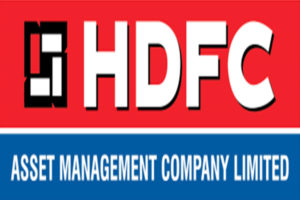

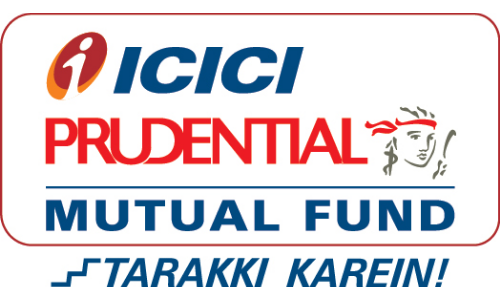
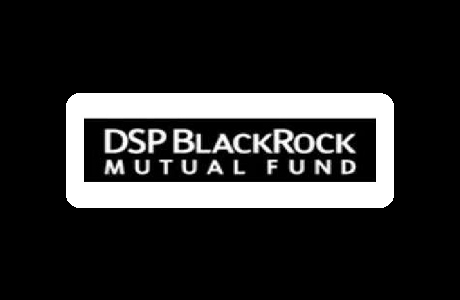
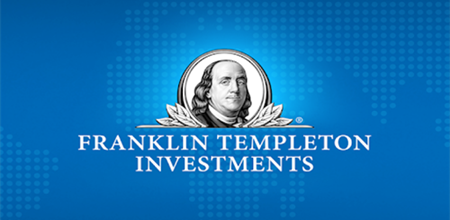
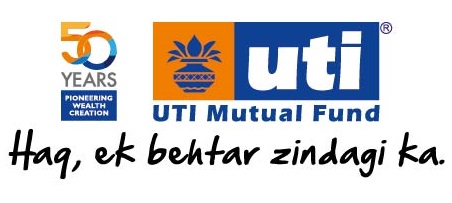

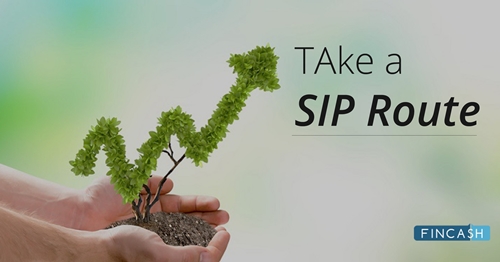





very informative